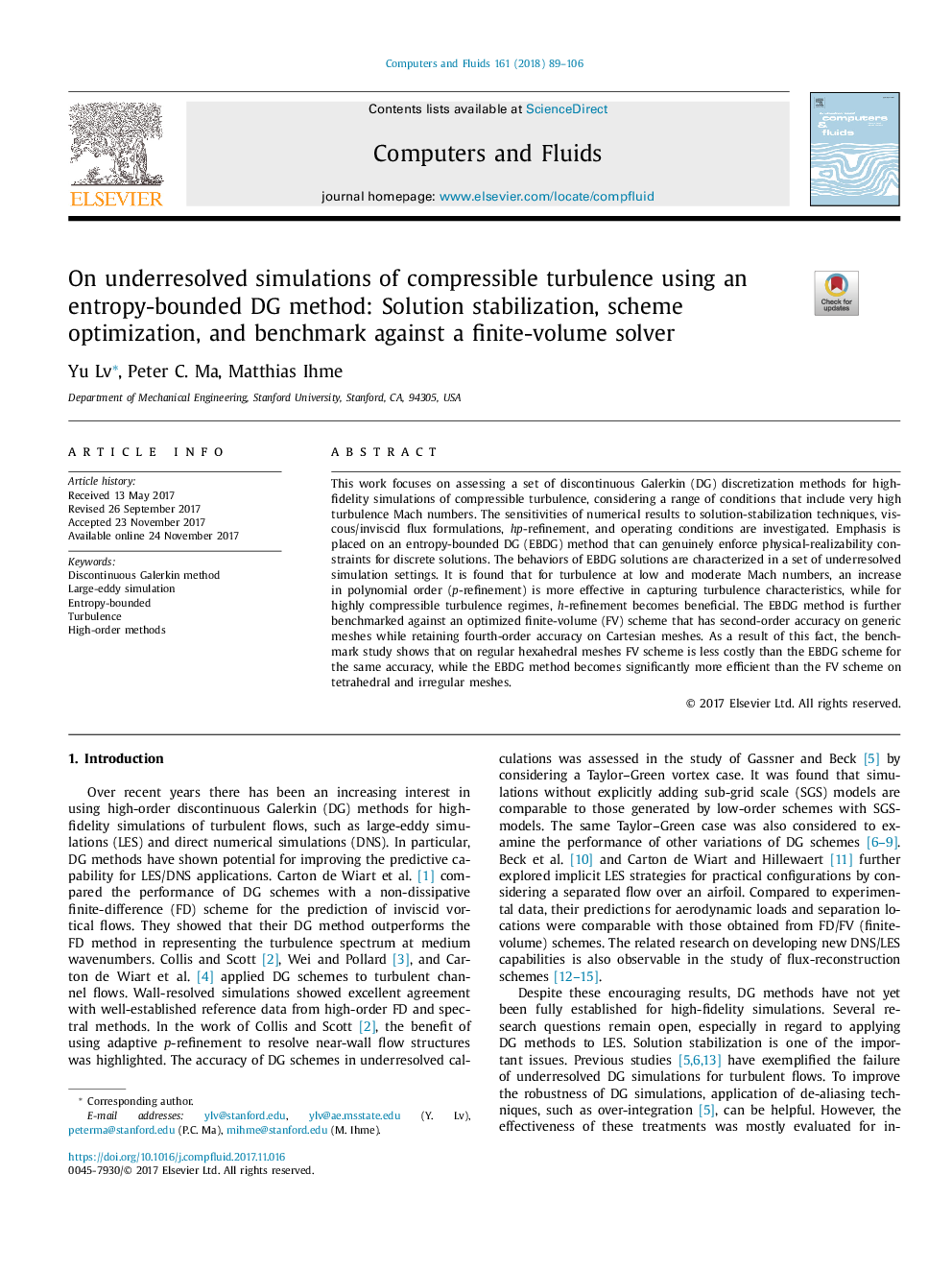| Article ID | Journal | Published Year | Pages | File Type |
|---|---|---|---|---|
| 7156502 | Computers & Fluids | 2018 | 18 Pages |
Abstract
This work focuses on assessing a set of discontinuous Galerkin (DG) discretization methods for high-fidelity simulations of compressible turbulence, considering a range of conditions that include very high turbulence Mach numbers. The sensitivities of numerical results to solution-stabilization techniques, viscous/inviscid flux formulations, hp-refinement, and operating conditions are investigated. Emphasis is placed on an entropy-bounded DG (EBDG) method that can genuinely enforce physical-realizability constraints for discrete solutions. The behaviors of EBDG solutions are characterized in a set of underresolved simulation settings. It is found that for turbulence at low and moderate Mach numbers, an increase in polynomial order (p-refinement) is more effective in capturing turbulence characteristics, while for highly compressible turbulence regimes, h-refinement becomes beneficial. The EBDG method is further benchmarked against an optimized finite-volume (FV) scheme that has second-order accuracy on generic meshes while retaining fourth-order accuracy on Cartesian meshes. As a result of this fact, the benchmark study shows that on regular hexahedral meshes FV scheme is less costly than the EBDG scheme for the same accuracy, while the EBDG method becomes significantly more efficient than the FV scheme on tetrahedral and irregular meshes.
Related Topics
Physical Sciences and Engineering
Engineering
Computational Mechanics
Authors
Yu Lv, Peter C. Ma, Matthias Ihme,
